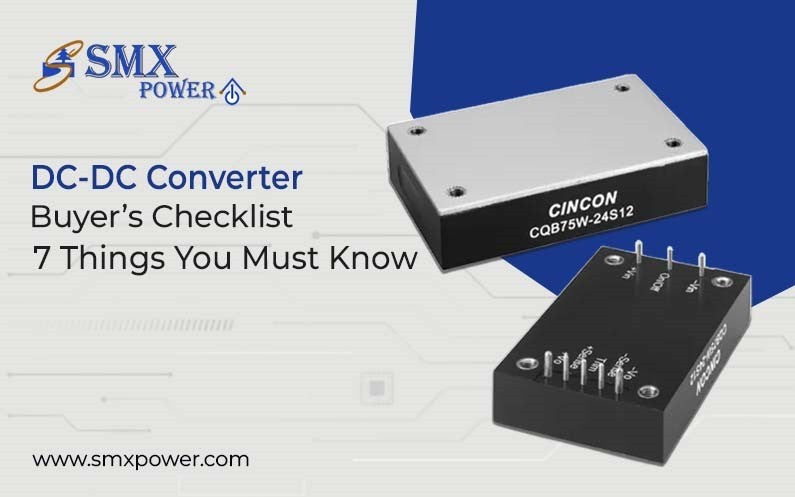As a beginner shopping for power supply products, focus on your power needs, installation requirements, product type, and brand support. That’s a sure-fire way to avoid wasting money on unnecessary purchases. These nifty gadgets are more complex than they appear and are often the first to fail, with devastating consequences for your appliances.
So, before you make the purchase, consider the pros and cons of every feature and, above all, be practical. A DC-DC converter is the heart of any power supply system. Here’s a guide to sift through the quotes and claims to find the best DC to DC power converter for your home and commercial needs.
Voltage Requirements
The voltage of your power source and the voltage you need the converter to output are major considerations. To start you off, consider the voltage source you are working with and the input voltage requirement of your devices and appliances.
Matching these specifications is crucial to avoiding overkill or premature failure. Stable and predictable input voltage is an instant boost to efficiency. Sometimes, simplicity can outperform even complex systems.
Current Requirements
Even the best converters can’t maintain good efficiency outside their current ratings. Like voltage requirements, output and input current specifications should be considered to preserve efficiency. Choose a converter capable of handling the load you plan to connect.
If the current rating falls outside the manufacturer’s ratings, it could overload it and impede its temperature management capability. As a rule, you want a converter that can take on a little more current than you think you need.
Efficiency Rating
The more efficient the converter, the less energy is wasted. Heat is a major problem for DC-DC power converters. They are compactly designed and run continuously. Under this condition, heat dissipation becomes an issue for the internal components.
Manufacturers often test and rate the efficiency of the converters. These specifications are attached to the product as a percentage. An efficiency rating of 80% and higher is ideal, provided the converter is not used under demanding conditions.
Ripple Voltage
Voltage ripple is the variation in output voltage that occurs due to fluctuations in input voltage. Some appliances come with built-in tolerance to higher ripple values. However, other sensitive gadgets rely on converters for a stable and clean DC output.
Check the datasheet on the product specification documents for ripple voltage ratings. A lower rating is better for performance and stability. The application will determine the amount of ripple voltage you can tolerate.
Heat Management
DC-DC converters produce heat the longer they run. That makes thermal management crucial for efficiency and durability. The application and operating conditions can also lead to energy loss through heat.
Converters are built differently in terms of thermal management solutions. Consider the thermal protection and operating temperature limits. The right converter will come with thermal management features that can keep up with your applications.
Size
If you are working within confined spaces, then you can do without a bulky power supply. DC-DC power supplies come in different sizes. Look for an option with dimensions that can fit your designated converter area.
Keep in mind that size also affects the converter's thermal management. For demanding applications, choose a little bit of space. Ultimately, the size and footprint will determine the mounting solution you can use.
Extra Features
Depending on the application, you may benefit from additional features. However, additional features don’t always translate to improved efficiency. Features like overvoltage, overcurrent, and short-circuit protection are reliable.
Some converters allow you to adjust the output voltage and current. It is always important to fully assess your needs to determine the special features that would save you time and offer value for money.
Conclusion
Before you go shopping for a DC-DC converter, familiarize yourself with your power supply needs. It will save you time comparing product features and lead you straight to the ideal converter.
At SMX Power, we offer a wide range of power supply products that can be customized to suit your specific requirements and specifications. Get in touch today for everything you need to power your world.

